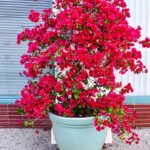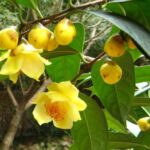In Vietnamese spiritual feng shui, the altar is a sacred space that reflects reverence for ancestors and deities. Each item placed on the altar holds a special meaning, contributing to the balance of yin and yang and bringing prosperity to the family. Offering fresh flowers is a common practice, as they symbolize purity and are believed to attract good fortune, wealth, and peace. However, not everyone knows the correct placement of flowers on the altar according to feng shui principles to achieve optimal results. The following article will guide you on how to arrange flowers on your altar in a way that aligns with traditional feng shui practices.
1. The Significance of Flowers on the Altar
In feng shui, fresh flowers represent life, growth, and the connection between descendants and their ancestors. Placing a vase of flowers on the altar is a way of offering the purest and most noble essence to the deities and ancestral spirits. Regularly changing the flowers demonstrates respect, care, and a desire to maintain positive energy within the home.
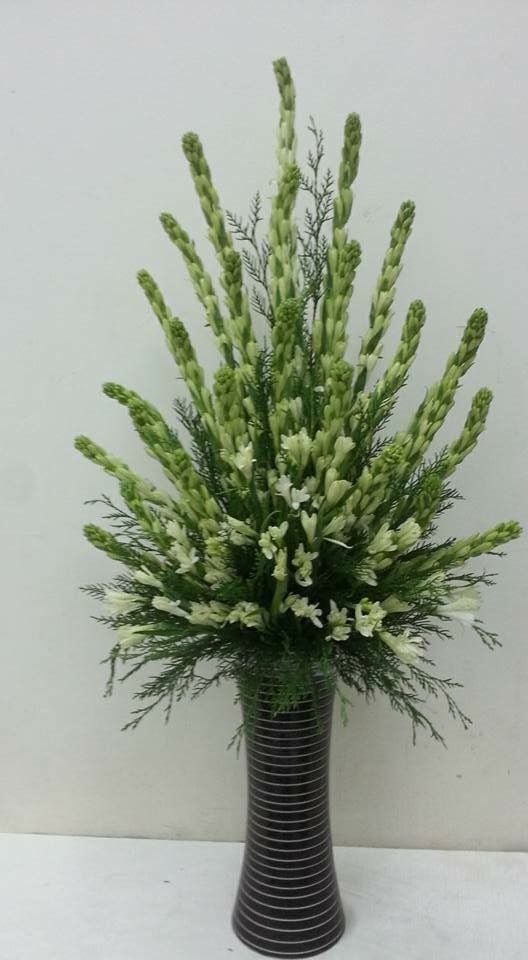
Additionally, different types of flowers carry distinct meanings. For instance:
- Lotus: Symbolizes purity and nobility.
- Chrysanthemum: Represents longevity and stability.
- Gladiolus: Expresses gratitude and respect.
- Money plant: Attracts wealth and prosperity.
Apart from the choice of flowers, their placement on the altar is equally important from a feng shui perspective. Opt for fresh, non-wilted flowers with positive connotations, and a pleasant but not overpowering fragrance. The scent of flowers is believed to enhance the worshipper’s spiritual focus, promoting concentration and purity while dispelling negative energies and purifying the prayer room.
2. Optimal Placement of Flowers on the Altar According to Feng Shui Principles Practiced by the Wealthy
2.1. The “East Vase, West Fruit” Principle
Traditional and East Asian feng shui principles suggest that when arranging an altar, homeowners should follow the “East Vase, West Fruit” rule. This means:
- The vase of flowers should be placed on the east side (left side when facing the altar)
- The fruit platter should be placed on the west side (right side when facing the altar)
Feng shui explains that the east represents wood, which symbolizes life and growth, and is associated with the direction from which light emanates. As flowers belong to the wood element, placing the vase on the east side is believed to boost positive energy, inviting good fortune and abundance.
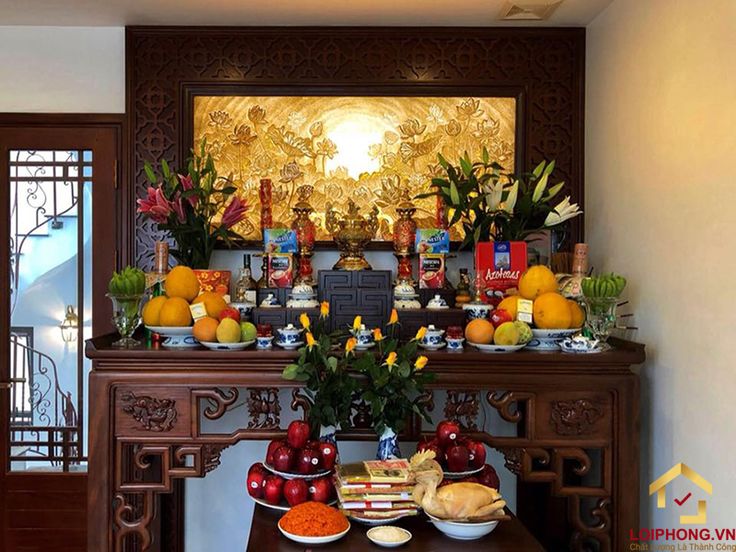
Conversely, the west represents metal, which is associated with wealth and possessions. As the fruit platter belongs to the metal element, placing it on the west side is believed to attract wealth and safeguard treasures.
Additionally, when the vase is placed on the east side, the wind carries the scent of the flowers across the altar, creating a positive spiritual atmosphere for worship. Traditional houses often face south, making the “East Vase, West Fruit” rule even more pertinent.
Therefore, if you have one vase of flowers, it should be placed on the left side of the altar. If you have two vases, they should be placed symmetrically on both sides.
2.2. Avoid Placing the Vase in the Center of the Altar
Many families today have a habit of placing the vase of flowers in the center of the altar to create a sense of balance. However, from a feng shui perspective, this is not advisable. The center of the altar is reserved for the incense burner, a sacred object that connects the physical and spiritual realms. Placing the vase in the middle obstructs the burner, hinders the flow of energy, and may negatively impact the family’s fortune and health.
If you wish to maintain symmetry while adhering to feng shui principles, you can use two vases of flowers placed symmetrically on both sides of the altar. However, it is still recommended to prioritize placing flowers on the left and the fruit platter on the right to follow the “East Vase, West Fruit” rule.
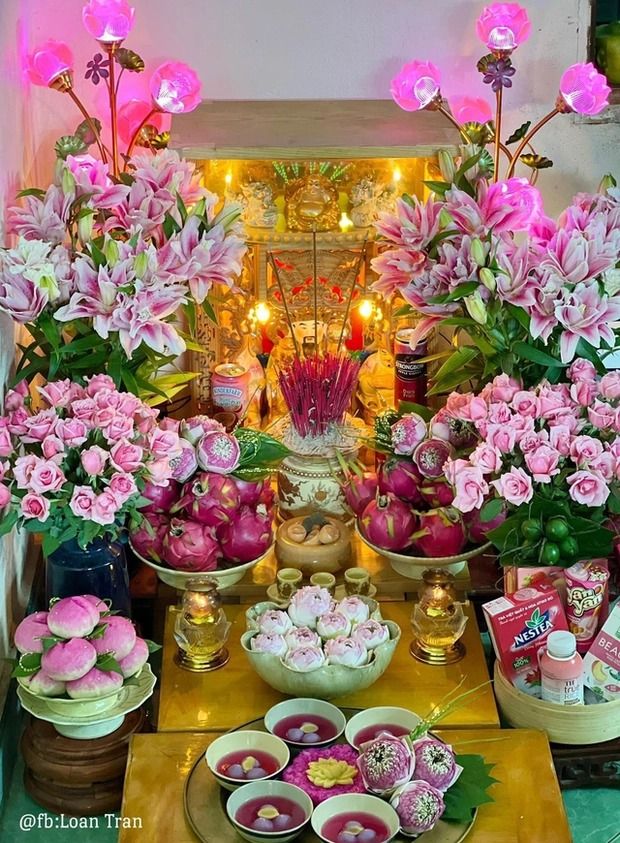
2.3. Choose a Stable and Secure Location
The vase of flowers should be placed on a flat, stable surface on the altar to prevent accidents. Spilling or breaking the vase is considered a taboo in the worship space. If your altar is small, opt for a moderately sized vase to avoid overwhelming the space and obscuring other items.
3. Considerations When Choosing Flowers and a Vase for the Altar
To attract wealth and prosperity, homeowners should also pay attention to the type of vase and flowers offered:
- Vase Material: Prefer ceramic, porcelain, or glass vases with elegant patterns. Avoid black, gray, or bizarre designs.
- Vase Shape: Opt for tall, round vases without sharp corners or unusual shapes. Choose vases specifically designed for worship, rather than those typically used for flowers in living rooms.
- No Artificial Flowers: Only use fresh, real flowers to demonstrate sincerity. Artificial or wilted flowers are believed to diminish positive energy.
- Number of Flowers: Odd numbers are favored for altar flower arrangements as they symbolize growth (e.g., 1, 3, 5 flowers, etc.).
- Empty Vases: When not in use, keep the vase empty and upside down, only placing it on the altar when offering fresh flowers.
Regularly change the water and flowers, especially during full moon and new moon days and on special occasions, to maintain a clean and vibrant altar.
4. Additional Feng Shui Tips to Attract Wealth and Prosperity from the Altar
- Keep the altar clean and free from dust.
- Burn incense at auspicious times, usually in the early morning, to offer positive yang energy.
- Avoid placing personal items or unrelated objects on the altar.
- Arrange items such as the incense burner, lamp, and water vessel symmetrically and harmoniously.
Information for spiritual contemplation
“The Great Debate: Adorning Your Home with the Majestic Bougainvillea”
“Bougainvillea, also known as the Paper Flower, is a vibrant and resilient plant that adds a touch of tropical paradise to any garden. With its vibrant colors and lush foliage, it’s no wonder that many homeowners and gardeners are eager to incorporate this beautiful plant into their outdoor spaces. But where is the best place to plant bougainvillea to ensure its vibrant blooms and healthy growth?
In this guide, we’ll explore the ideal locations for planting bougainvillea, taking into account the plant’s unique preferences and requirements, to help you create a thriving and stunning display that will be the envy of your neighborhood.”
5 Signs Your Home Has Good Feng Shui: The Longer You Stay, the Richer You Get
“The ancient wisdom of feng shui has long guided people in their quest for a harmonious and prosperous life. It is believed that a home blessed with positive energy can greatly influence the well-being and success of its dwellers. This introduction explores five auspicious signs that indicate your home may be graced with favorable feng shui, offering a glimpse into the secrets of attracting good fortune.”

























